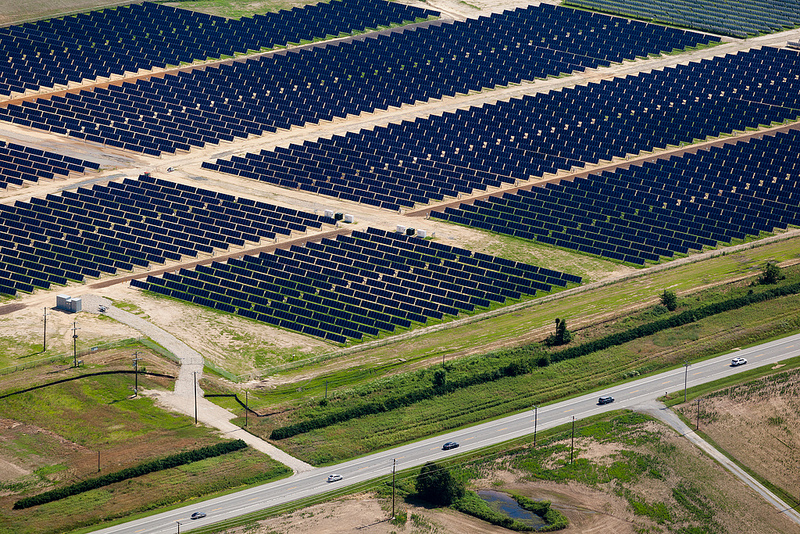By Rosemary Wilson, Jacob Veitch, Anna Susie and Jillian Scott
For MarylandReporter.com
College Republicans across the country are calling on policymakers to make clean energy a priority. The College Republicans here in Maryland are no exception.
We get it: The global race to lead the transition to clean, efficient energy is on, and the states and nations that act boldly will give themselves a competitive edge, create good jobs, and grow their economies.
Now is the time for Maryland policymakers to build on the state’s clean energy progress. A new initiative to update the electric grid, spearheaded by Gov. Larry Hogan and the Public Service Commission, represents a tremendous opportunity to ensure that Maryland is well positioned to lead and benefit from the renewable energy revolution.
Their decisions could help build on the progress that the Hogan administration has made to promote the growth of clean, efficient energy, including supporting more funding for clean energy research programs and the further deployment of electric vehicles and their charging infrastructure.
Modernizing the electric grid is a no-brainer
From a job-creation standpoint, taking an aggressive approach to grid modernization is a no-brainer. In the 21st century economy, clean energy and energy efficiency are where the jobs are. We’ve seen that in Maryland and nationwide. In Maryland, the solar industry employs more than 7,300 people – almost twice as many as the number employed by the fossil fuel industry.
On the national level, “wind-energy technician” is the fastest-growing job in the United States. Solar energy employment grew 17 times faster than the overall economy in 2016. The energy efficiency industry employs more than 2.2 million Americans nationwide, which is more than the oil, gas and coal industries combined.
Those numbers will keep growing as clean, efficient energy becomes increasingly affordable. In 2016, renewable energy capacity worldwide grew by a record amount (17%), largely driven by significant drops in the cost of equipment. Wind energy is now one of the cheapest sources of electricity in the United States, and it’s expected to stay that way. Since 2010, the cost to install solar energy has declined by 70%.
A PSC process that prioritizes updating the electricity grid will give Maryland a competitive advantage when it comes to attracting clean energy-focused businesses to the state. U.S. corporations care about being able to access clean energy easily. For example, a coalition of more than 100 corporate entities have set a goal of purchasing 60 gigawatts of renewable energy by 2025, which is enough electricity to power nearly 50 million homes.
Recognizing big businesses’ growing demand for clean, renewable power is especially important as Maryland tries to court Amazon to set up its new headquarters in the state. Amazon has a goal of achieving 100% renewable energy, and making it easy for the company to plug into clean energy would give Maryland a competitive edge in convincing Amazon to come here.
Moving to electric cars
Just as important is preparing Maryland’s electricity grid to be able to accommodate a rapid transition to electric vehicles, including developing the necessary electric vehicle charging infrastructure. In 2016, there were more than 6,700 electric vehicles registered in Maryland. In the coming years, that number is expected to grow exponentially, as the state has set a goal of achieving 60,000 electric vehicles on the road by 2020 and 300,000 on the road by 2025.
From an economic and national security standpoint, there is tremendous value in moving to electric vehicles. It is key to reducing our nation’s over-reliance on oil, which ties us to regimes that don’t always have our best interest at heart and leaves us vulnerable to oil price spikes that negatively impact economic growth.
As College Republicans getting ready to join the workforce and start families in the coming years, we want our policymakers to take steps that will help promote a strong and prosperous economy for decades to come. Maryland’s regulators and policymakers have the opportunity to continue to do just that, by ensuring that the state’s grid is better able to accommodate clean, efficient energy solutions that promote economic growth and cost savings for Maryland families and businesses alike.
Do it for us, the younger generation that represents the future of this great state.
Rosemary Wilson is a sophomore studying Environmental Science and Policy at the University of Maryland and is a member of the College Republicans. Jacob Veitch is a senior at the University of Maryland studying International Business and Government and Politics and currently serves as Chairman of the Maryland Federation of College Republicans
Anna Susie is a sophomore at Salisbury University studying Marketing and is the president of her school’s chapter of College Republicans. Jillian Scott is a sophomore at Salisbury University studying Political Science and International Relations and is a member of her school’s chapter of College Republicans.



Recent Comments